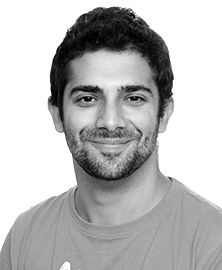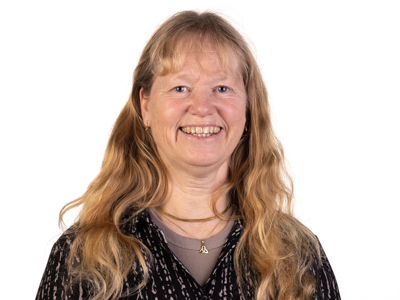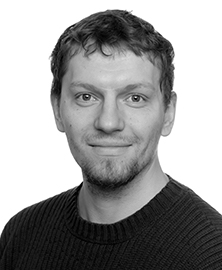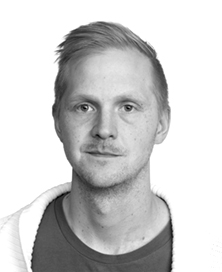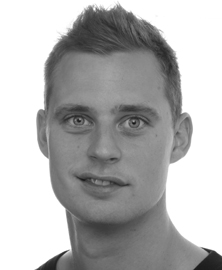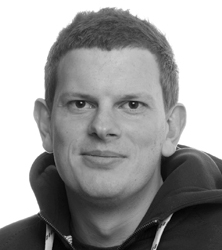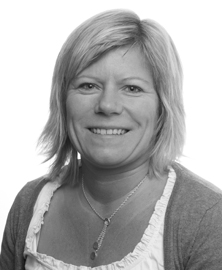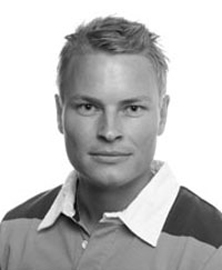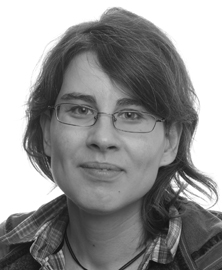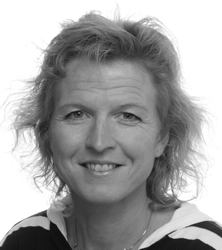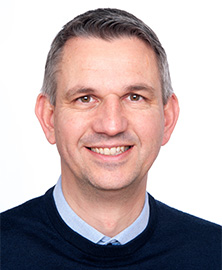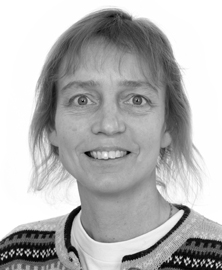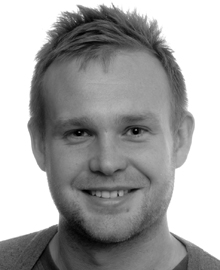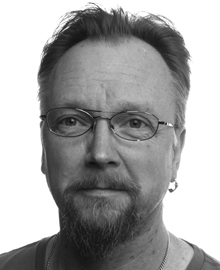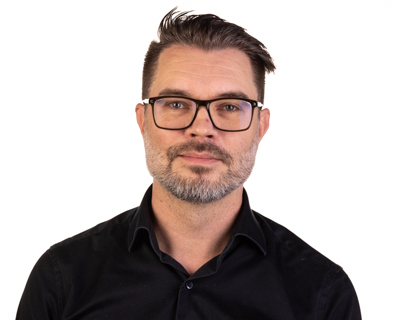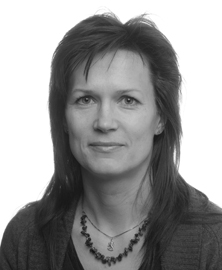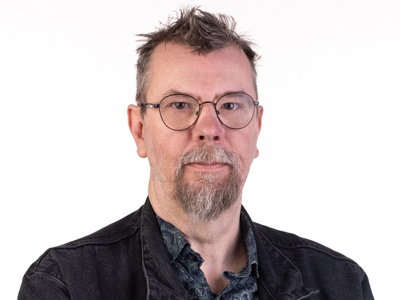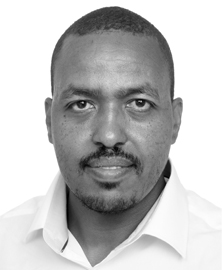Find Research
Search for researchers, research groups, projects and partners. You can search by free text and/or filters.
Search result
Virtual Engineering
User Centred Product Design
2015-2017
The project 3D-SILVER (Decision-making Support using Information in Layout Visualization and Ergonomics Representation) (Vinnova, Produktion2030, 2015-01451) aims to provide decision makers in producing industries with better virtual tools for layout planning, ergonomics assessment and workplace design.
Virtual Engineering
User Centred Product Design
2006-2009
The context of the 4D Ergonomics project (VINNOVA/MERA, Dnr 2005-01998) is the simulation of humans in manual assembly tasks. The project builds on the previous ViPP project.
Virtual Engineering
Production and Automation Engineering
2021-2024
For companies to stay competitive, resilient and sustainable in an ever-changing world, extreme flexibility in the production processes is required to be adaptive and agile.
DHEAR
Family- Centred Health FamCeH
2017-2022
This project is an ongoing doctoral project at the University of Skövde. There is a global interest in and concern with various health issues. Globalization affects individuals’ health and well-being and leads to worldwide migration.
Informatics
Skövde Artificial Intelligence Lab
2015-2020
An unprecedented growth of data, fed by novel technologies, user behaviour and business models, is one of the most dramatic and important developments in both ICT and society at large. Most of this is Big Data, characterised by vast volume, high velocity, large variety and unknown veracity. These properties pose significant challenges when collecting, managing and processing data.
Systems Biology
Translational Bioinformatics
2013-2016
Human pluripotent stem cells (hPSC) are characterized by their unique capacities of self-renewal and differentiation, and, as such, they provide an excellent human cell source in basic research, drug discovery and regenerative medicine.
2023-2026
The INGENIUM European University is an ambitious Alliance that brings together 10 Universities from 10 EU Member States, supported by a large group of associate organisations, ranging from regional and local governments to industry and civil society groups.
Virtual Engineering
Production and Automation Engineering
2021-2025
Manufacturing industries are constantly challenged by the market to improve product quality, increase production efficiency, ensure safety, and enhance sustainability. In this project, the team will be analyzing the interactions between digital systems and the physical world to see: Is it possible, with the target users’ satisfaction and safety in focus, to integrate optimization-enabled Digital Twins with Augmented Reality and other advanced sensing technologies to drive manufacturing companies toward a more agile configuration and operation in the industry 4.0 era?
Virtual Engineering
User Centred Product Design
2021-2024
The purpose of the project Automated Design and Optimisation of Vehicle Ergonomics (ADOPTIVE) is to study the physical vehicle user interaction and develop methodology for advanced vehicle ergonomics analyses within simulation tools.
Systems Biology
Ecological modelling
2019-2024
Ecology as a science has lacked a general scientific theory capable of making predictions on ecological phenomena on various levels, but now a candidate for such a theory exists. This is termed the Metabolic Theory of Ecology (MTE) and states that energy use (metabolism) is a central process for all organisms that partly can be predicted from body size and then used to make predictions on ecological processes at the population and community level. However, there is some scepticism towards MTE as a general theory and so far the empirical support for it is mixed. In this project, different predictions of MTE will be studied to test the theory and see if and how it may need to be modified.
DHEAR – for a healthier and more sustainable soci
Translational Medicine TRIM
2015-2020
Human hairy skin contains a special type of nerve fibers, so-called CT-fibers that respond to slow stroking across the skin, such as a caress.
Oxytocin, a hypothalamic nonapeptide, is released e.g. through light touch, caresses, warm temperature etc. Oxytocin release can be linked to well-being, stress reduction and other health-promoting effects. These anti-stress effects are particularly strong when oxytocin is released in response to low-intensity stimulation of the skin.
In this project, we want to study the relationship between activation of CT-fibers and release/activation of the oxytocin system in response to light touch. Some genetic variations that have previously been linked to touch responses will also be studied.
Informatics
Interaction Lab
2023-2026
The overall goal of this project is to create a sustainable workplace where autonomous robots and humans work together safely and efficiently.
Informatics
Interaction Lab
2015-2019
AIR investigates action and intention recognition in human interaction with autonomous systems (or AIR, for short). More specifically, the focus is on the interaction of humans and autonomous systems that move in shared physical spaces.
Systems Biology
Translational Bioinformatics
2017-2020
Within AlgorOmics we develop and implement algorithms for integration, visualization, and analysis of large-scale omics data, with applications in stem cell differentiation and drug development.
Systems Biology
Biotechnology
2012-2016
Contamination with heavy metals, such as arsenics, is a severe threat to human health and the environment. The fundamental goal of this project is to develop a new variety of the strategically important crops such as rice and wheat for elimination or reduction of arsenic contamination in human foods and the environment. However, the long-term goal of the project is to protect several hundred million people around the world from severe diseases caused by arsenic poisoning through consumption of contaminated foods.
School of Engineering Sciences
PAT
2015-2020
Augmented reality (AR) is a technology that is starting to reach maturity, with AR smart glasses (ARSG) showing great potential for seamless integration. With this we are facing a paradigm shift with early adapters starting to integrate ARSG into production but with a majority not still taking the step. This project aims to enable more and faster integration of ARSG into production. The method used is to develop a tool for assessing compatibility for specific production lines to guide in the first steps of integrating ARSG as an operator support tool in assembly.
Virtual Engineering
Production and Automation Engineering
2018-2020
Since inspecting the quality of die-cast and hot-pressed metal components is mostly done manually, increased automation in this step would substantially increase the competitiveness of die-casting foundries and hot-pressed metal component manufacturers. The project therefore intends to develop, test, and evaluate vision systems for automating the quality inspection of die-cast and hot-pressed metal components.
DHEAR
Wellbeing in Long- term Health Problems
2019-2022
The Swedish part of the BaltSe@nioR 2.0 joint project is headed by associate professor Catharina Gillsjö at the School of Health Sciences, University of Skövde. The partnership in the project includes a number of partners from countries around the Baltic Sea and is financed by the Interreg BSR, the Baltic Sea Region Program.
Systems Biology
Translational Bioinformatics
2015-2018
The pharmaceutical industry has an urgent need for in vitro model systems with high human relevance that can be used for toxicity testing, drug development, and disease modelling. The project aims at developing a human in vitro model based on human pluripotent stem cells that can mimic important aspects of the blood-brain-barrier.
Systems Biology
Translational Bioinformatics
2020-2024
Artificial intelligence (AI) is an important driving force that is rapidly transforming health care and pharmaceutical industries in several ways. The vast amount of biomedical data available today poses unique opportunities to develop a repertoire of AI-based models. Although the results from studies using AI for solving biomedical problems are encouraging, there are numerous scientific challenges associated with AI for life science applications that need to be addressed.
Systems Biology
2020-2023
The marine algae belt is one of the most active primary producing environments in the sea. It harbors a great diversity of animals including sea squirts, ribbon/nick/serpulid and spionid worms as well as ghost shrimps. Globally there exist over 7,000 species with around 250 species from Norway. The knowledge about their taxonomy and dis-tribution is poor. Specimens in museum collections are often quite old and wrongly determined. Many of these taxa include invasive species causing high economic dam-age in aquaculture and ship transportation. This is why we urgently need a field inven-tory to collect species from the Skagerrak up to 70°N i Norway. With morphological and molecular methods, we will determine the species and learn more about their dis-tribution.
Systems Biology
Translational Bioinformatics
2015-2019
The aim of this project is to contribute with improved methods for analysis, integration, and visualization of biomedical big data. Recent years it has been a massive digitalization of all types of data and information in the society and the majority of all information in the world is nowadays anticipated to be digitalized. This encompasses enormous possibilities for generation of new knowledge but also puts demands on competence and tools for analysis and interpretation of big and complex data, e.g. to identify and extract patterns and information from different data sources. To meet these increasing demands of large-scale data analysis more competence, better and faster algorithms, and powerful computers are needed for execution these algorithms.
Systems Biology
Translational Bioinformatics
2017-2022
This project is one of the three subprojects within the synergy project BioMine - Data-mining for biomarker discovery, selection, and validation. In this subproject we investigate how large-scale biomolecular data can be used to identify specific biomarkers for disease modelling
Systems Biology
Translational Bioinformatics
2017-2022
This project is one of the three subprojects within the synergy project BioMine - Data-mining for biomarker discovery, selection, and validation. In this subproject we investigate how large-scale biomolecular data can be used to identify specific biomarkers for toxicity testing. The project is performed in close collaboration between the University of Skövde, AstraZeneca Gothenburg and Takara Bio Europe.
Systems Biology
Infection Biology
2017-2021
This project is one of several ongoing projects in the research "Future diagnostics of sepsis". The goal is to develop earlier and more accurate diagnostics for sepsis in order to increase the chance of patients suffering from survival and with less disease complications.
Systems Biology
Translational Bioinformatics
2017-2022
In the BioMine project (Data-mining for Biomarker Discovery, Selection, and Validation), studies are performed on how large-scale biomolecular data can be mined to enable discovery and validation of multilevel biomarkers in Life Science.
Systems Biology
Biotechnology
2012-2016
With this project we aim to initiate and develop a sustainable and cost effective method for the removal of heavy metals and other toxic chemicals from the nature, particularly from contaminated water and cultivated lands.
Informatics
Skövde Artificial Intelligence Lab
2015-2019
Big data has gained much interesting in recent years due to the rapid expansion of the massive amount of data that is available for solving different types of tasks within many different application domains. However, today's big data is still on a fairly low level of abstraction when it comes to complex decision support tasks, subject to e.g. high dimensionality and significant portions of uncertainty regarding which patterns to look for in the data.
Informatics
Distributed Real- Time Systems
2021-2022
Over the past years, Sweden has seen a large increase in micro producers, owner of energy system. That means more installations of low voltage distributed generators and energy production systems, such as solar panels, bioelectrical energy, wind energy etc., have been connected to traditional grids. The Swedish system is set-up in a way that a micro-producer can either consume the electricity the energy system produces or feed it into the grid. The electricity not used is automatically delivered.
2022-2025
The application of the emerging INGENIUM Alliance of European Universities met the required criteria for the Horizon Europe, Call HORIZON-WIDERA-2021-ACCESS-05-01 – Capacity building to strengthen networks of Higher Education Institutions (HEI) and cooperation with surrounding ecosystems.
DHEAR
Wellbeing in Long- term Health Problems
2019-2024
The elderly are becoming a bigger share of the population and more older people still have their own teeth. Elderly people who need municipal care are also on the rise and this places demands on nursing staff to have the skills needed to assess and care for the oral health of the elderly. Performing oral care is not an easy task, as it can be perceived as an invasion of privacy. Neglected oral health can also lead to poorer overall health. It is possible to prevent poor oral health with small means such as daily oral care.
Systems Biology
Translational Bioinformatics
2017-2021
The advancement in stem cell research over the last decade has now made it possible to generate large quantities of human specialized cells for in vitro applications. Specifically, in the drug discovery and development process this has important implications. The project involves studies of the genetic and molecular basis of hypertrophy and aims to develop new knowledge that can contribute to the development of novel therapies and treatments that can reduce cardiovascular morbidity and mortality.
Informatics
Information Systems
2016-2021
In this project a large variety of stakeholders are enabled to explore what collective action strategies are most effective to create resilience for payment system disruptions in the food system, the fuel system, the finance system and society at large.
DHEAR – for a healthier and more sustainable soci
Family- Centred Health FamCeH
2021-2025
The health processes of children and adolescents are affected by contemporary societal discourse on values, identity formation and digitalization. It is important to make visible sexual diversity, enable healthy relationships and to prevent relationship violence. Digitalization may be utilized to contribute to and sustain health in an undertaking to gradually advance equal and sustainable development in society when supported by a health-promotive approach and a focus on the identification of resources over time.
Informatics
Software Systems Research Group (SSRG)
2014-2016
Cloud and Internet Services with Open Source Software for SMEs (CISOSS) is an is a two years (2014-2016) ERASMUS+ project involving a number of European partners including University of Skövde.
Systems Biology
Ecological Modeling
2023-2028
The CLANCY project will increase the capacity of the North Sea Region to preserve climate-adaptive, biodiverse ecosystems, through management of the Chinese Mitten Crab.
Virtual Engineering
Virtual Manufacturing Processes
2017-2020
Virtual models continue to develop in the area of machining. The finite element method (FEM) is the dominating method for performing simulation of the cutting process. Much research is conducted to obtain reliable models that can be used to model complex cutting processes in industrial applications.
Informatics
Distributed Real- Time Systems
2020-2021
The research idea behind the project is to address the challenge and to provide technical solutions to understand and improve CPS-based resilience for critical infrastructure protection (CIP). The research is planned for a future EU-funded project application to collaborate with academic and industrial partners in the EU.
Virtual Engineering
User Centred Product Design
2013-2016
The CROMM (Creation of Muscle Manikins) project (Vinnova Dnr 2012-04584) will result in a user friendly and highly automated software.
Informatics
Information Systems
2024-2029
Over the last decade, our society has become increasingly digital, with advancements in areas like smart cities, smart industry, and critical infrastructure. To safeguard their assets and data, organizations must prioritize cybersecurity measures. Organizations must stay vigilant, invest in cybersecurity, and adopt informed countermeasures to navigate the evolving digital landscape.
Informatics
Skövde Artificial Intelligence Lab
2017-2021
Companies keep store a large quantities of data about us, as e.g. our electronic transactions, traces of our internet usage, phone calls and social network posts. This information is valuable for the companies and also for the users as data permits personalization in services. Nevertheless, some of this information is confidential.
Informatics
Distributed Real- Time Systems
The DeeDS architecture is a distributed real-time systems architecture developed for complex real-time systems by the DeeDS project.
Systems Biology
Translational Bioinformatics
2022-2024
In this project we develop and implement an innovative Deep-Learning (DL) based method for quality assessment for industrial use. By using human embryonic stem cells as a model system, we develop in different steps a neural network (NN) classifier for a stepwise prediction of the cell state (quality) of these cells using quantitative PCR (qPCR) data.
Virtual Engineering
User Centred Product Design
2016-2018
The Design, Textiles and Sustainable Development (DesTex) project and initiative (VGR Dnr RUN 612-0016) aims to strengthen Region Västra Götaland (VGR) as a leading knowledge area.
Systems Biology
Infection Biology
2014-2017
All over the world, soilborne bacteria and fungi cause severe crop diseases which lead to substantial problems in agriculture due to serious yield losses of great economic impact.
DHEAR
Wellbeing in Long- term Health Problems
2023-2028
In DigiSTRENGTH, the goal is to promote healthy aging by providing structure and space for existential conversations, where a central component is to identify small and large goals that provide strength, joy, and meaning in life.
Virtual Engineering
User Centred Product Design
2008-2009
The purpose of the research project Digital Albert (KK-stiftelsen Dnr. 2007/0137) is to improve the efficiency of product development processes by exchanging knowledge and experiences about user centred design methods and technologies between the two branches: vehicle and health care industries.
DHEAR
2021-2025
A more sedentary life and a diet high in sugar have created public health problems in low-income countries - heart disease has become increasingly common in the population. To help prevent this development, researchers at the University of Skövde, Mid Sweden University and two Nepalese universities will examine existing knowledge among parents and school children in Nepal and develop a digital health education.
DHEAR
Family- Centred Health FamCeH
2019-2024
The research project Digital Parental Support research project was initiated in 2019 as a pilot project collaboration and includes researchers from the research group FamCeH at the University of Skövde (the School of Health Sciences), researchers from the School of Information Science at the University of Skövde, University of Borås, the Labor and Postnatal Ward at Skövde Skaraborgs Hospital and Antenatal Clinics Skövde and, Västra Götalandsregionen.
Virtual Engineering
User Centred Product Design
2022-2024
Through an increased degree of digitization, industrial work instructions in the last 20 years have given an increasingly digital representation.
Systems Biology
Translational Bioinformatics
2023-2026
Advanced Therapy Medicinal Products (ATMPs) is a rapidly emerging field in medicine with great potential, where there is a growing need for robust and accurate methods to characterize and classify processes to assess safety aspects. This project gathers stakeholders from academia, research institutes and industry from various disciplines to develop AI-based methods for safety assessment of ATMPs.
Informatics
Information System
2022-2025
The purpose of the DOME consortium is to build knowledge about the implementation and use of eHealth services and is based on studies of e-health projects. We do research in cooperation with the parties involved in the establishment of Online Patient Records in Sweden.
Informatics
Distributed Real- Time Systems
2017-2025
We are all heavily dependent on software in our daily life. Software control our cars, phones, bank accounts etc. Failures are frequent and sometimes catastrophic. Software testing aims to reveal faults before the software comes into use.
Informatics
Interaction Lab
2014-2019
DREAM is a project funded by the European Commission and coordinated by the University of Skövde. The goal is to deliver the next generation robot-enhanced therapy (RET) for children with autism spectrum disorder (ASD), developing clinical interactive capacities for social robots that can operate autonomously for limited periods under the supervision of a psychotherapist.
Virtual Engineering
Production and Automation Engineering
2016-2018
The project is within the area of Industry 4.0 closely related to the application and technical solutions proposed by Efficient Equipment Engineering E3.
Systems Biology
Infection Biology
2014-2016
This project is one of several ongoing projects in the research "Future diagnostics of sepsis". The goal is to develop earlier and more accurate diagnostics for sepsis in order to increase the chance of patients suffering from survival and with less disease complications.
2015-2021
Iman Morshedzadeh is a PhD student within IPSI. He is developing an information structure for managing virtual models and their related data, in the product lifecycle management (PLM) context. Iman started his research in April, 2015 and plan on being finished in 2021. This research is partly funded by Volvo Cars Engine factory, and the results of this research will be used by them for implementation of a PLM system in their factory.
Informatics
Information Systems
2020-2021
In order to detect crises well in advance, the municipality needs to monitor what is happening in the world. Today there is no clear method for this: everyone does in their own way. In the ELISA project we take inspiration from a method used in the municipality's crime prevention work: Effective Collaboration for Security (EST). In this method, different organizations report each week what happens in society and assess together what trends occur and what different actors in society can do to respond to these events. What if the municipality could to continuously and systematically gather information in the same way to detect crisis?
Informatics
Distributed Real- Time Systems
2017-2020
The Elvira project develops time-based infrastructure dependency analysis for the power-grid to model risk assessment and resilience index, which assist decision makers in anticipating failures and their cascading effects.
Systems Biology
Ecological Modeling
2019-2024
In today’s biodiversity crisis, there is an urgent need to monitor terrestrial and aquatic species in their natural habitats, especially those that may be endangered, invasive or elusive. Studies conducted within this project will lead to a new metod of tracking down threatened species, the results will be integrated into current monitoring programmes (e.g. red-listing) and action plans.
Informatics
Information Systems
2015-2017
The Erasmus+ project OMI (Open Model Initiative) has the goal to create teaching material and an modeling environment for enterprise modeling to be used for master and PhD education in Europe.
Informatics
Distributed Real- Time Systems
2010-2012
Information Fusion for Energy Efficiency.
DHEAR – for a healthier and more sustainable soci
Translational Medicine TRIM
2016-2025
Enzymatic inhibitors that slow down the production of ROS (reactive oxygen species) have been shown to be effective in mitigating the effects of a stroke. Additional effects, such as reduced growth of cancer cells have also been detected. This area of research is very exciting as no approved drugs with similar effects are available today.
Virtual Engineering
User Centred Product Design
2022-2025
The EWASS project is going to assist the industry in ensuring a sustainable work-life by empowering human workers during assembly of wire harnesses by using simulations and robots.
School of engineering
IPSI
2015-2020
In nowadays manufacturing industries there is usually a lack of knowledge in decision makers and stakeholders to optimize production and logistics flows considering the shop floor layout. Decision support system through Simulation-Based Multi-Objective Optimization can be a significant approach for production and logistics system improvement. The main benefits are optimized solutions with an increased efficiency of the production, internal logistics and required space on the shop floor layout. Usually at a lower cost than consultancy companies, obtaining just the best optimal solutions and with the possibility of analyzing them without interrupting the system. The application of research with Simulation-based Optimization in manufacturing leads to significant improvements of complex systems as demonstrated in major manufacturing companies working together with universities and research centers.
DHEAR
Translational Medicine TRIM
2020-2025
The study is a human study for healthy volunteers who for three weeks replace their usual diet with a ketogenic diet. Metabolic, microbiotic, neurobiological and clinical parameters are measured before and after the study. This means that a whole-body perspective is taken into account when it comes to health, but also the mental part as well as how the mentally status linked to the dietary change.
Informatics
Software Systems Research Group (SSRG)
2017-2019
The FOSS4SMEs is a two years (2017-2019) collaborative Erasmus+ project involving Atlantis Engineering, Open Forum Europe, University of Skövde, DLEARN and the Dublin Institute of Technology, which aims at bringing education on free and open source software to small- and midsize enterprises.
DHEAR – for a healthier and more sustainable soci
Research on Citizen Centered Health, University of
2019-2020
The level of physical activity is constantly declining among children and adolescents. School children today do not reach the recommended level of activity needed to maintain good physical and mental health, in the present or for the future. The FUN project aims to develop digital aids and applications that will encourage pupils with neurodevelopmental disorders (NDDs) to increase their level of physical activity.
Informatics
GAME Research Group
2021-2022
Future Media Theaters brings together partners from industry, academia, and the cultural sector in Sweden, the UK, Hungary, Austria, Belgium, and the US who are all working together to investigate and create new forms of performance using interactive technologies.
Informatics
Interaction Lab
2019-2021
Game Hub Scandinavia aims to strengthen the Scandinavian position in the global game community. In the Game Hub Scandinavia project researchers and business developers’ work together to build knowledge and networks in the global game development community in order to support Scandinavian studios on the global game market.
DHEAR – for a healthier and more sustainable soci
Translational Medicine TRIM
2015-2021
We investigate genes that cause cancer aggressiveness. We specifically focus on the childhood cancer tumor neuroblastoma, which occurs in the nervous system of young children. Some tumors are more aggressive than others, and the difference is what has happened to the genes in the tumor. If the tumor has lost some of the genes on chromosome 11, the child has a poor prognosis. We test the properties of genes that have been lost, to see if those specific lost properties are something that will benefit the tumor cell. We want to replace those properties through different types of treatments, and in this way kill the tumor cell. We analyze clinical/genetic data and make experiments in cultured cells and in fruit flies.
Systems Biology
Ecological Modeling
2008-2015
In this research project we study several of the suggested causes for the decline of great Arctic charr, using a combination of field experiments, analysis of historical data and analyses of mathematical models.
DHEAR
Wellbeing in Long- term Health Problems
2023-2025
The purpose of HeADS is to study digitization, social community, participation and health and the connection between them. The study is carried out in collaboration with the municipality of Skövde, which wishes to gain a greater understanding of what needs exist among the municipality's residents, in order to best meet the needs that exist.
Informatics
Distributed Real- Time Systems
2013-2016
The HELICOPTER proposal aim at exploiting ambient-assisted living techniques to provide older adults (end users) and their informal caregivers with support, motivation and guidance in pursuing a healthy and safe lifestyle.
Informatics
GAME Research Group
2016
What is it that makes electronic sports a positive experience for the spectators, and how can that experience become even greater? A research project at the University of Skövde will give an answer to those questions. The project, partly financed by the Västra Götaland region, is a collaboration between the University and the computer-game company Stunlock Studios as well as two more partners: Tarhead Studio and Folkuniversitetet.
Virtual Engineering
Production and Automation Engineering
2021-2024
Predictive maintenance is one of the major thrust areas for many global manufacturing companies. Artificial intelligence, big data analytics and industrial internet of things (IoT) have already shown great potential in the area of maintenance. However, as more companies adopt these technologies, several key challenges have emerged hindering the progress towards complete digitalization of maintenance operations.
Virtual Engineering
User Centred Product Design
2009-2013
The objective of the IMMA project (ProViking/PV09.13) is to develop a path planner tool that finds a collision free and biomechanically acceptable way for a part and the human who is assembling the part, seen as a system.
Informatics
Information Systems
2023-2026
Elderly are vulnerable in many ways, especially with regard to isolation and involuntary loneliness. Welfare technology can break this isolation. One example of welfare technology is personal security alarms. An issue with this type of alarms is that they increase the risk of isolation as they only work in the users’ home. Meaning that people with reduced physical function and/or cognitive impairments are at risk of becoming isolated due to fear of falling or losing their way. An alternative to these alarms is GPS alarm.
Enterprises for the Future
Knowledge, Innovation and Marketing
2017-2020
Inbets BSR works on researching, developing and designing innovative and transferable models and tools to facilitate the transfer of small and medium-sized businesses. Professor Susanne Durstfrom University of Skövde is a partner in the Inbet BSR project, which includes several partners around the Baltic Sea (including Drivhuset Skaraborg).
Informatics
GAME Research Group
2014-2015
The project’s aim is to develop a framework for inclusive video game design. In this first exploratory study we are developing two games for smartphones and tablets that include players with visual impairments.
Informatics
Skövde Artificial Intelligence Lab
2018-2020
Fusarium attacks on Swedish cereals in recent years have attracted increasing attention. While these attacks can lead to reduced harvests, the most serious effect is that this fungus can produce toxins. EU legislation has defined limit values for the content of Fusarium toxins because they are harmful to both humans and animals. Our project aims to develop a farm-based decision support system that will assess the risk of Fusarium attacks and elevated levels of deoxynivalenol (DON) in cereals. It can be used by both advisers/consultancies and farmers.
Informatics
Skövde Artificial Intelligence Lab
2021-2024
The iron and steel industry needs to be streamlined and the amount of scrap reduced to increase returns. What is required is a faster and more reliable production with stricter tolerances – then better products are created that reach the customer faster. This project, INSITE-X, will develop an AI-based prototype for detailed simulation of dynamic production-behaviour of critical machines, to increase process understanding and control.
Informatics
Interaction Lab
2023-2026
I2Connect focuses on developing next generation of Advanced Driver Assistance Systems (ADAS) for trucks. The emphasis will be on developing algorithms for fusion and situation assessment and prediction based on Evidence Theory, as well as adaptive human-machine interfaces (HMI).
Virtual Engineering
Production and Automation Engineering
2014-2017
Designing or improving a manufacturing system involves a series of complex decisions over time to satisfy the strategic objectives of the company. To select the optimal parameters of the system entities so as to achieve the desired overall performance of the system is a very complex task that has been proven to be difficult for a decision maker in the design/improvement process.
Systems Biology
Ecological Modeling
2021
Invasive alien species can affect biodiversity as they can compete with native species or spread infections. The consequences of alien species are often very costly. It is therefore important to detect invasive species as early as possible in order to control them. How is the situation in Lake Vänern? Researchers at the University of Skövde will carry out a feasibility study with the aim of taking an inventory of invasive alien crustaceans in the country's largest lake. Behind the assignment are the Lake Vänern Water Management Association and the county administrative boards around Lake Vänern.
Informatics
Skövde Artificial Intelligence Lab
2019-2022
Intention recognition is the task of inferring an agent´s intention based on its previous actions. It is crucial for human social intelligence which in turn enables understanding of, and for the ability to predict, other humans´ behaviours, such as for example other drivers´ intent to overtake, stop, turn, or switch lanes. For making situation-based decisions, both autonomous and human drivers need to take the intentions of surrounding vehicles into account. This is especially true in a mix of autonomous and human drivers.
Virtual Engineering
Production and Automation Engineering
2018-2026
Virtual factories with knowledge-driven optimization (VF-KDO) is an eight-year research profile that is being coordinated by the University of Skövde. Research within this profile aims to help strengthen the competitiveness of Swedish industry.
Informatics
GAME Research Group
2015-2021
KASTiS is a sub-regional collaborative and knowledge platform for the sustainable use of game technology and interactive media in Skaraborg. The project started 1 August, 2015 and ends on 31 July, 2018.
Virtual Engineering
Production and Automation Engineering
2020-2022
The long-term vision of this research is to support knowledge-driven decision making in Swedish industry, which in turn can contribute to leverage their overall productivity and competitiveness.
Informatics
GAME Research Group
2014-2015
Online “sexual grooming” is the process by which a child is befriended by a would-be abuser in an attempt to gain the child’s confidence and trust. In online interactions, children run the risk of being abused and some contacts may also lead to physical meetings where children can become subject to further abuse.
Digital Health Research (DHEAR)
Wellbeing in Long- term Health Problems
2019-2020
Around the world, research is ongoing to develop and deepen knowledge about eHealth services. The Swedish National Guidelines for Asthma and COPD has brought attention to the lack of relevant patient education for persons with COPD. As there is an uneven regional structure regarding COPD care in Sweden, resulting in unequal care for patients, self-care education is highly prioritized in the new National Guidelines.
Systems Biology
Ecological Modeling
2019-2021
Sweden and the vast majority of other countries in the world have agreed to preserve biodiversity, ie the variation of species and natural environments. Man need biodiversity as the basis for ecosystem services. Some examples of ecosystem services are carbon sequestration that slows down global warming, water purification that gives clean drinking water and pollination that increases crops.
Virtual Engineering
Virtual Manufacturing Processes
2022-2025
The project will study and optimize joining processes for different stages of battery manufacturing, from battery cells to battery packs.
Informatics
GAME Research Group
2015-2020
The main focus of the Level Up project is to study if it by using gamification and game technology is possible to increase young citizens (16-39) consumption and re-distribution of news.
Informatics
Software Systems Research Group (SSRG)
2016-2020
The LIM-IT project is a collaborative research project running over four years, which involves Combitech AB, Findwise AB, Husqvarna AB, JAK, PrimeKey Solutions AB, RedBridge AB, Saab AB – ICT, Scania IT AB and University of Skövde as project partners. The project is financially supported by the Knowledge Foundation.
Virtual Engineering
Production and Automation Engineering
2017-2020
Future manufacturing will be characterized by the complementarity between humans and automation, especially regarding the production of highly customizable products.
DHEAR
Research on Citizen Centered Health, University of
2024-2026
Innovative interventions are crucial for addressing global healthcare burdens related to obesity and mental health. Therefore, this project will explore the interplay between diet, obesity, mental health, and the gut microbiome through a 12-week digital intervention study. The primary aim is to assess the feasibility and effectiveness of a dietary intervention on weight loss and mental well-being in obese individuals, while also investigating the gut microbiome's role.
Systems Biology
Infection Biology
2020-2023
This project is one of several ongoing projects within the research programme “Future diagnostics for sepsis”. The aim is to develop diagnostics that can be used earlier in cases of sepsis in order to increase the patient’s chances of survival with fewer complications.
Virtual Engineering
Production and Automation Engineering
2015-2017
The project ”Measuring and Managing Continuous improvements in Medium-sized Manufacturing Companies” (MMC²) is a collaboration between three schools at the University, The School of Engineering Science (Virtual Systems Research Center), The School of Informatics (Informatics Research Center) and The School of Business, and four medium-sized manufacturing companies in the west of Sweden.
Virtual Engineering
Production and Automation Engineering
2018-2021
Project vision is an open modular framework for efficient and interactive simulation and analysis of realistic human motions for professional applications. Within the European economy, digital modelling activities and the simulation of human motion in particular, have emerged during the last decades in various domains ranging from automotive and truck over healthcare, construction and pedestrian simulation to the gaming industry.
DHEAR
Translational Medicine TRIM
2003-2029
Neurogenetic disorder is a group of diseases or conditions that impair the functioning of the nervous system and muscles. Neurogenetic diseases are largely caused by defective genes, a mutation or error in the DNA instructions. There are an increasing number of gene mutations that have been identified in patients with neurogenetic diseases. There are, however, a large number of neurogenetic disorders with unknown causes.
DHEAR
Translational Medicine
2016-2021
The scientific work that will be performed in this project is to explore new pathways of cancer treatment with particular focus on pancreatic cancer. These new ways of treatment are based on changing the functions of different signaling and metabolic pathways such as NADPH oxidase (NOX), reactive oxygen species (ROS) and metabolism which are known to be up-regulated or malfunctioning in cancer cells. By using different chemicals such as NOX inhibitors, digitoxin and ketone bodies inhibit their activity and thereby decrease the cell viability of the cancer cells. Focusing treatment on the differences between normal / cancer cells would help develop methods that inhibit cancer cells with less negative effects on normal cells.
DHEAR
Translational Medicine TRIM
2019-2021
We focus on the molecular link between androgen excess and the development of reproductive disorders, obesity, and type-2 diabetes in females. Our overall aim is to investigate new treatments and identify the underlying mechanisms that improves or protect against the development of diabetes and decreased fertility.
My line of research has evolved from more than 10 years of experience in whole-animal physiology studies involving endocrinology, metabolism and re-production.
Informatics
GAME Research Group
2018-2021
The project Off Season Art Gardening aimed to contribute to, and create, art works in public outdoor spaces in three different countries.
Informatics
Software Systems Research Group (SSRG)
2018-2022
The aim of this project is to ensure sustainable management of water and
sanitation for all, and to promote the transition towards sustainable
value chains and inclusive and sustainable economic growth. We believe
that the development of digital twins, not only for the systems and
processes but for the water treatment infrastructure as a whole, can
open up for new efficient techniques and sustainable innovations.
Informatics
Interaction Lab
2023-2026
Digital tools based on AR and VR are increasingly used in industry to support operators. But how does it affect employees' skills and understanding of the systems they work with? The University of Skövde has been granted SEK 4.8 million to develop a guide for how the digital tools should be used in the manufacturing industry.
Virtual Engineering
Production and Automation Engineering
2008-2011
The overall aim of this proposed multi-discipline (industrial engineering and computer science) project is to leverage the effectiveness of the Swedish industrial and service sectors, by introducing the state-of-the-art simulation technology, namely simulation-based intelligent optimisation, to their system design and daily operations.
Virtual Engineering
Production and Automation Engineering
2018-2020
Informatics
Software Systems Research Group (SSRG)
2012-2015
Open Source software Reference Implementations for Open Standards Developing a reference model for improved competitiveness.
Informatics
Software Systems Research Group (SSRG)
2021-2023
The main outcome from the OSSD project is a one year master programme comprising courses of industrial relevance in the field of open systems which is developed in order to address future challenges concerning sustainable digitalisation.
Informatics
Skövde Artificial Intelligence Lab
2019-2022
Predictive Maintenance (PdM) using Artificial Intelligence (AI) and Machine Learning (ML) is the top-ranked use case in terms of business value of industrial digitalization. Not surprising since the annual maintenance cost in Swedish manufacturing industry is over 100 billion SEK and 60% of all maintenance activities are reactive.
DHEAR – for a healthier and more sustainable soci
Wellbeing in Long- term Health Problems
2019-2027
There is little known about the patient perspective in patients suffering from paroxysmal supraventricular tachycardia (PSVT), a condition with a sudden onset of fast heart rhythm. PSVT affects approximately 0, 2 – 1 % of the population in the Western world.
Informatics
Distributed Real- Time Systems
2013-2016
Model based development is used to increase software quality and software development productivity. Models are created at a platform independent level and then transformed to platform specific models by the use of a model compiler using the same principles as when source code is compiled into assembler.
Virtual Engineering
User Centred Product Design
2022-2025
The ongoing electrification of the automotive industry will initially lack competence, it is new knowledge that is required to take the automotive industry to the next phase. According to the EC, the loss of skills within the battery cell plants is estimated to be up to 800,000 people until 2025. And even the industry would have enough people, the factories are not yet built, which makes it impossible to train the person on site.
DHEAR
Family- Centred Health FamCeH
2017-2021
The number of people with poor mental health has doubled in Sweden since the mid-eighties. Symptoms related to poor mental health are sleeping disorder, anxiety, irritability, stomach ache, back pains or concentration difficulties. WHO highlights mental health in adolescents as a high priority area that needs to be addressed to promote the agenda for sustainable development.
Virtual Engineering
Production and Automation Engineering
2022-2025
Optimal production planning is one of the most time-consuming and challenging tasks for many production experts, especially in diverse manufacturing environments where humans, robots, and machines work independently or collaboratively. Therefore, in this Industry 4.0 era, it is crucial to equip manufacturers with a digital decision support tool to plan their production efficiently. This project aims to develop an optimization tool to assist production planners in determining the optimal production sequence and assigning tasks and resources to workstations.
Informatics
Software Systems Research Group (SSRG)
2014-2017
PREFORMA – PREservation FORMAts for culture information/e-archives – is a Pre-Commercial Procurement (PCP) project co-funded by the European Commission, under its FP7-ICT Programme.
Virtual Engineering
Production and Automation Engineering
2018-2020
The goal of the project is to create the required conditions for continuous innovation and developments connected to electric powertrains and efficient value chains to facilitate the production of the new generation of electric powertrains to take place in Sweden, and not through, e.g., outsourcing. The project is up and running, and the steering committee meets once a month.
Systems Biology
Infection Biology
2017-2024
Inflammation is part of the body's natural response to an infection or injury. Classic symptoms of an infection include swelling, redness, warmth and tenderness.
Virtual Engineering
Virtual Manufacturing Processes
2021-2025
The manufacturing industry worldwide has great demands on itself to create sustainable products and reduce its environmental impact, demands that force the industry to move its production from traditional methods to new efficient processes. For six years, the QWELD project will develop methods for quality assurance and optimization of laser and ultrasonically welded components.
Virtual Engineering
Virtual Manufacturing Processes
2021-2023
The automotive industry is in the middle of a technology shift towards electric powertrains. The change in technology requires building up the knowledge base of the entire value chain within the industry. In the long term, the goal is to establish long-term production of electric drivelines in the region with many years of secured employment in the automotive industry and its supply chain.
Systems Biology
Ecological Modeling
2023-2024
In this project, researchers at the University of Skövde collaborate with Kinnekulle Energi AB, Götene Municipality and the Vänerskärgården Biosphere Reserve to strengthen biodiversity within the landscape in which Kinnekulle Energi has its power line network.
DHEAR
Wellbeing in Long- term Health Problems
2017-2024
A project aimed to support older adults with long term health problems.
The challenge in health- and social care of today is to provide care with a holistic ap-proach to meet each individual´s needs. Health care providers tend to spend more time focusing on the health problem per see, rather than focusing on the individual´s situa-tion as a whole. Less attention is often given to psychological and social needs and dialogue with the older adult. Research has shown that many older adults experience loneliness, exclusion and lack of support, especially during times of illness.
Virtual Engineering
Production and Automation Engineering
2019-2022
To remain competitive on the global market, industry is continuously improving economic, social and environmental performance. The REWIND project seeks to take advantage of current industrial trends in digitalisation and sustainability. Capitalising on the expertise of the academic and industrial partners, the consortium will make use of digital technologies, assessment methods, strategic planning tools and materials research to realise opportunities towards a circular economy.
Systems Biology
Infection Biology
2016-2019
This project is one of several ongoing projects within the research programme “Future diagnostics for sepsis”. The aim is to develop diagnostics that can be used earlier in cases of sepsis in order to increase the patient’s chances of survival with fewer complications.
Virtual Engineering
Production and Automation Engineering
2016-2018
SIM2020 is a three-year projects aimed at building a demonstrator environment at the university. A demonstrator is a physical or virtual prototype that demonstrates the practical value of the research. The demonstrators are built for an industrial audience with the purpose to get more industrial companies interested in using the university's research. The project has a particular focus on small and medium-sized manufacturing companies.
DHEAR
Wellbeing in Long- term Health Problems
2022-2025
The overall aim of the project is to study how an educational intervention with simulation in age suit influences the understanding of ageing, being old and living with age-related health problems and care of older persons. Furthermore, the project aims to longitudinally study nursing students' views on ageing, older persons, and the care of older persons.
Virtual Engineering
Production and Automation Engineering
2011-2014
With today’s global and rapidly changing markets, companies face the challenge of constantly improving their logistics in order to stay competitive. The project Smart Optimization of Logistics (SOL) aims to support this activity by providing a way of performing smart optimizations resulting in reduced costs, improved effectiveness, and enhanced capabilities.
Virtual Engineering
User Centred Product Design
2016-2018
In Sweden, physical strain injuries yield a cost of estimated 50 billion SEK annually. The injuries are due to poorly designed workplaces and workers adopting ergonomically incorrect techniques. The smart textile based systems developed in the project will enable large reduction of costs to the society by offering a means to assess work load and prevent injuries, hence enable a longer working life.
Systems Biology
Infection Biology
2016-2020
This project is one of several ongoing projects in the research "Future diagnostics of sepsis". The goal is to develop earlier and more accurate diagnostics for sepsis in order to increase the chance of patients suffering from survival and with less disease complications.
Informatics
Distributed Real- Time Systems
2018-2019
Cutting-edge Internet of Things (IoT) devices are increasingly deployed in urban environments creating new data streams, which could be exploited to deliver novel cloud-based services. Connected vehicles and road-infrastructure data are leveraged in this project to alleviate parking and induced traffic-congestion issues. The proposed SmartPark algorithm maximizing parking availability prediction, while minimizing the journey duration to the selected parking lot.
Informatics
Interaction Lab
2024-2026
The purpose of RO-LIV is to identify the needs, solutions, and obstacles for assistive social robots that contribute to improved quality of life for older persons. The project is based on interdisciplinary collaboration between researchers in informatics and health science and aims to deliver a roadmap supporting decision-makers in the implementation of social robots in care for older persons, with a specific focus on the home environment.
Virtual Engineering
Production and Automation Engineering
2016-2018
One of the most important aims of any manufacturing value chain is to align and combine many objectives, i.e. strategic, tactical and operational, in various stages, i.e. production, plant or supply chain level, so that they work towards a common goal – increasing the efficiency and profitability of the overall manufacturing value chain.
Virtual Engineering
Production and Automation Engineering
2017-2020
This project proposes the concept of multi-level and multi-objective optimization in order to both horizontally and vertically align the optimization objectives of various manufacturing levels. For example production and plant wide level, focusing on strategic and tactical manufacturing objectives.
DHEAR – for a healthier and more sustainable soci
Family- Centred Health FamCeH
2019
In the Western world, injections of sterile water (SWI) are used as pain relief during childbirth (~ 5% in Sweden) and even less in countries where health systems are less developed, especially in rural areas. The idea of the project is to use digital support to increase awareness of the use of SWI, especially in areas with low access to pain relief methods during childbirth.
Informatics
Skövde Artificial Intelligence Lab
2021-2023
This project aims to identify, adjust and implement AI methods to improve and create a more resilient drinking water production and distribution, where the operators at the drinking water plants are supported in their decision making processes.
DHEAR
Wellbeing in Long- term Health Problems
2020-2024
Mobile Integrated Care is a care model introduced in Skaraborg (a former County now merged into the Västra Götalands region) that has developed into a national role model. In the research project " Mobile Integrated Care at Home in Skaraborg", researchers will study how patients and next of kin´s experience Mobile Integrated Care.
Systems Biology
Ecological Modeling
2019-2021
Imagine a bee collecting nectar and pollen from a flower. Their job as pollinators is one of the most important biological processes on our planet. Our survival depends on bees and other pollinators. But within recent years, reports show that our bees are not feeling well. To find out the wellbeing of different Swedish and Norwegian bee species we are going to compare these species in our research project, Supporting Nordic brown bees.
Informatics
Software Systems Research Group (SSRG)
2020-2024
SUDO is a collaborative research project running over four years that addresses the urgent need to tackle new and emerging challenges related to different types of lock-in effects that impact on decision makers in companies when IT systems are developed, used, and deployed in complex application domains.
Virtual Engineering
User Centred Product Design
2017-2021
SUMMIT aims at inviting Swedish industry to use the Virtual Development Laboratory (VDL) at Chalmers to collaborate, develop and show case the true benefits of digitalization. The project focus is on the sustainability, smart maintenance and factory design phases to strengthen Swedish industries.
DHEAR
Family- Centred Health FamCeH
2019-2024
The University of Skövde funds a doctoral project on parental support. The overall aim with this doctoral project is to examine existential health and sustainable development among women and partners during the transition to parenthood as well as explore midwifes understanding of existential health and sustainable development in a digital society relating to parenthood. This can be a basis for creating a care that contributes to sustainability for parents and society.
Informatics
Interaction Lab
2019-2021
Sweden Game Arena is a co-operation between University of Skövde, Science Park Skövde and Skövde municipality. The project aims to build the research- and development community for game development in Skövde and Region Västra Götaland. The project has three main activities: research and education in game development and incubation specializing in incubation game studios.
Informatics
Skövde Artificial Intelligence Lab
2018-2021
The project will create new values for the Swedish metal industry. This will be done through the use and development of recent data analysis techniques. By doing so, one will find currently hidden relationships between known and unknown process parameters and the resulting product quality.
Virtual Engineering
Production and Automation Engineering
2015-2019
The research project aims at developing the solution for a new working environment in which the collaboration between human worker and robots can take place and bring significant benefits to robot-reluctant industries.
Virtual Engineering
User Centred Product Design
2019-2023
The UN sustainability goals and the European and Swedish research agendas describe a need for efficient and effective tools and intervention methods to improve our ability to monitor and prevent disorders and diseases. European and Swedish research agendas also call for efficient digitalisation tools for the design, modelling, simulation, optimisation, visualisation, and forecasting of products and production processes, resources, systems, and factories during their life cycles.
Virtual Engineering
User Centred Product Design
2019-2021
Two of the biggest challenges facing the manufacturing industry over the next decade are digitization and demographic changes. Changes in demography are going to lead to an older workforce and greater challenges in attracting skilled labour.
Informatics
Skövde Artificial Intelligence Lab
2019-2022
The project will study design elements of future air systems that offer cognitive support for increased team effectiveness. The project will investigate how the design of complex systems can benefit from taking the teamwork perspective.
Informatics
Distributed Real- Time Systems
The current industry practice for testing of concurrent real-time applications is often based on case-specific ad-hoc techniques.
Informatics, Virtual Engineering
Information Systems, Production and Automation Engineering
2024
The project will focus on strengthening the implementation of the transformation of health care. The aim is to use quantitative calculations, alternative scenarios and simulations to describe how skill needs, supply and delivery of healthcare in the Västra Götaland region (VGR) may change up to 2040, both as a result of external environmental factors such as demographic pressure, medical development and the internal improvement work.
DHEAR – for a healthier and more sustainable soci
Family- Centred Health FamCeH
2014-2024
"The Study of Parental Support" is a research project into perceptions of and experience from support given to parents in relation to childbirth. Parents are included in the study in the middle of the pregnancy and are followed the first eight years postpartum.
Virtual Engineering
Production and Automation Engineering
2018-2020
Production is becoming increasingly complex and the industry has a great need for development as a result of the demands on digitalisation, sustainability and competence increasing. At the same time, there is research results that contribute to faster development, but far too few with the skills to drive the implementation. The purpose of the competence development project Virtual Factory has been to minimize this gap.
Virtual Engineering
User Centred Product Design
2021-2024
Project TIMEBLY will develop time data management for manual assembly operations at small volumes and large variation.
Informatics
Information Systems
2021-2024
Many organizations develop their working methods and services through digitalisation, but few are part of a change process that is as extensive and complex as the introduction of "Framtidens Vårdinformationsmiljö (FVM)" in Västra-Götaland.
DHEAR
Family- Centred Health FamCeH
2024-2027
The overall aim of the research project is to explore whether young people's mental health is strengthened by to participate in the implementation of the program, It is not visible. The program aims to teach young people, and their related adults, to regularly practice strategies to promote well-being.
DHEAR
Wellbeing in Long- term Health Problems
2015-2023
There is a demand for innovative projects based on a pedagogical approach that is systematically evaluated and focuses on the patient’s learning process. For patients with Diabetes type 2 the recommendation is a group-based education. The purpose is to improve the patient’s health in activities using the didactic model for patient education.
Informatics
Distributed Real- Time Systems
2013-2018
TOCSYC is a research environment that combines four Swedish groups in software testing research to advance the knowledge of testing critical characteristics of complex embedded systems. The characteristics that TOCSYC address are performance efficiency, robustness and testability.
Virtual Engineering
Production and Automation Engineering
2020-2023
With all the data acquired during a day of production, the possibilities for improvement are endless. All you need to do is find a way of interpreting the data. TOPAZ aims to investigate how a combination of data mining, machine learning and optimization can aid manufacturing companies. This will be done by transforming heterogeneous data derived from multiple sources, and potentially from different part of the value chain, into prescriptive actions that support long-term goals of profitability, sustainability and stability.
Systems Biology
Ecological Modeling
2013-2016
The project aims to develop the methodology for calculating targets and reference points within the International council for the Exploration of the Seas (ICES) in accordance with the new demands of achieving maximum sustainable yields (MSY) and ecosystem-based management (ESBM).
Systems Biology
Translational Bioinformatics
2019-2021
The Transplant Tissue Engineering (TransTissuE) is a collaboration project between the University of Skövde, VERIGRAFT and XVIVO. We develop methods and strategies for optimization of the production process of personalized tissue-engineered vascular transplants.
Informatics
Information Systems
2021-2024
The goal of this project is to create a platform that enables increased, multi-perspectival understanding of energy systems, society, environment, and climate.
Virtual Engineering
Production and Automation Engineering
2017-2020
With Industry 4.0 comes a technological evolution towards cyber-physical systems and a paradigm shift from centralized to decentralized production. This paradigm shift will change production. Our goal within the TWIN project is to develop a holistic solution for integrating a simulated twin of an automation system that covers the system’s entire life cycle. Such a solution will help companies stay competitive in a global and rapidly changing market and meet the challenges accompanying the fourth industrial revolution, such as mass-customization and short product life cycles.
Informatics
Skövde Artificial Intelligence Lab
2019-2020
The complex interactions among socio-demographic, climatic, economic environments, and possibly legal/institutional situations involve many factors that can influence patterns of population dynamics. In this project, we plan to resolve the limitation of machine learning by providing an explainable predictive model that allows users to try out ‘what-if’ scenarios by adding interactive input at a specific point in the time-series.
Informatics
Information Systems
2020
The project evaluates the practical usability of the tools developed in the EU ISF project ELVIRA to assess the vulnerability of IT systems for critical infrastructure, particularly power grids. The evaluation will be conducted in collaboration with medium-sized electricity grid companies.
Virtual Engineering
User Centred Product Design
2017-2019
The overarching purpose of the VEAP research project (KK-stiftelsen/INFINIT Dnr 20160292) is to study the implementation of DHM (digital human modelling) simulation in industrial production system development processes to support proactive consideration of ergonomics issues in early development phases.
Virtual Engineering
User Centred Product Design
2001-2004
The context of the VERDI project was the employment of human simulation tools for occupant packaging in vehicle design processes.
Virtual Engineering
User Centred Product Design
2015-2016
The aim of the Virtual Driver project (KK-stiftelsen/INFINIT Dnr 20140296) was to carry out research related to the development of the Swedish digital human modelling (DHM) tool IMMA (Intelligently Moving Manikins) to further develop the tool so that it can be utilised in the vehicle industry to perform efficient and valid virtual driver-vehicle interaction analyses.
Virtual Engineering
User Centred Product Design
2017-2019
The aim of the Virtual Driver Ergonomics project (KK-stiftelsen/INFINIT Dnr 20160296) was to carry out research related to the development of the Swedish digital human modelling (DHM) tool IPS IMMA so that it is able to assist product developers in the vehicle industry to perform fast and objective virtual driver-vehicle interaction analyses of physical ergonomics.
DHEAR
2024-2026
The purpose of the research project is to evaluate an educational module with a virtual patient, focusing intimate partner violence. The project is carried out in collaboration between the Center for Psychiatry Research in Stockholm (Region Stockholm and Karolinska Institutet) and The Department of Health Sciences, University of Skövde.
Informatics
Information Systems
2019-2022
Rescue services have to maintain their knowledge and skills on an ongoing basis through training and examination. Training is today primarily done in instructor-led exercises on training fields. Rescue services can train a greater variety and complexity of events with virtual simulation, while fire fighters can participate from their own station without having to travel. More skills can be developed more flexibly with virtual simulation: mass-training can be realized by training more often in shorter sessions. The research project focuses on how instructors should act to use virtual simulation successfully.
Virtual Engineering
User Centred Product Design
2016-2018
The objective of the Virtual Verification of Human-Robot Collaboration project (Vinnova Dnr 2015-03719) is to perform research and development actions needed for the creation of a simulation tool that facilitates efficient and valid simulation of human-robot collaboration and where the consideration of human variation is supported.
Virtual Engineering
Production and Automation Engineering
2018-2020
Vision systems for quality inspections in production processes have existed for a long time, but are currently used only to a limited extent and then primarily within manual assembly lines. Within the VISION project, we aim to develop a low-cost, high-performing vision system for automated quality inspections in assembly lines based on cheap hardware and state-of-the-art machine learning algorithms for real-time image processing.
Virtual Engineering
User Centred Product Design
2019-2022
The objective of the VIVA (the Virtual Vehicle Assembler) project is to perform research and development actions to provide Swedish vehicle industry with an efficient and usable ergonomics simulation (digital human modelling) tool. The tool will support engineers to, already at early stages of design and development processes, make more precise decisions about operators' ergonomics conditions in future workstations.
Systems Biology
Ecological Modeling
2017-2020
Industrial wastewater is usually characterized by analyses of chemical concentrations or biological toxicity tests in combination. Included is to detect if there are toxic substances or combinations of substances that are toxic and in turn will affect ecosystems negatively. In this project we aim to improve and design novel biological tests using biomarkers.
Virtual Engineering
2021-2025
Digitization is going at a furious pace and if Sweden is to maintain its competitiveness, we must introduce new knowledge into people. During the years 2021-2025, the WISER project will do just that. Among other things, the project will create competence-enhancing initiatives in the technologies of the future, organizational development and leadership.
Virtual Engineering
Production and Automation Engineering
2014-2017
You2 is a three-year research project that focuses on the development of IT tools for future industrial operators. The central research questions of the project concern the collection of large amounts of data, intelligent processing of the data, automatic optimizations in real-time and user interface design for new technologies such as smart glasses. The work in the project is conducted in close collaboration with industrial partners and is characterized by prototype development aiming at the higher TRL levels.
Professor Public Health Science
Professor at the Department of Community Medicine, Kathmandu Medical College, Nepal
Professor of Molecular Biology
Senior Lecturer in Production Engineering
PhD student, University of Skövde
Senior Lecturer in Informatics
Associate Professor of Informatics
Professor of Public Health/Dean
PhD, University West/Chalmers
Senior Lecturer in Informatics
Professor of Automation Engineering
Huawei Technologies Sweden
Project Ledare, Toxicon AB
Professor at Production Systems, Chalmers
Luleå University of Technology
Senior Lecturer in BioInformatics
Associate Professor of Biomedicine
Senior Lecturer in Product Design Engineering
Telephone number
0500-448859
Working away from the office
Professor of Health Science
Adjunct Senior Lecturer in Nursing
Head of School/Associate Professor
Professor of Production Engineering
Senior Lecturer in Biomedicine
Senior Lecturer in Computer Science
Intellectual Property Manager and R&D project leader at XVIVO Perfusion
Associate Professor/Pro-Dean
Senior Lecturer in Product Design Engineering
Lecturer in Media Arts, Aesthetics and Narration
Professor of human-computer interaction
Senior Lecturer at University West
Senior Lecturer in Informatics
Producent- och Logistikchef, Svenska Lantägg AB
Senior Lecturer in BioInformatics
Senior Lecturer in Production Engineering
Associate Professor of Informatics
Chalmers University of Technology
Security Expert, Combitech AB
Professor of Computer Science
Senior Lecturer in BioInformatics
Senior Lecturer in Nursing
Associate Professor of Nursing
Senior Lecturer in Nursing
Senior Lecturer in Information Systems Development
Systems Engineer, Combitech AB
Halmstad University/Örebro University
Professor of Product Design Engineering
Senior Lecturer in Mechanical Engineering
Post-Doctor in BioInformatics
State University of New York
Head of School/Senior Lecturer in Systems Biology
Senior Lecturer in Nursing
PhD student, Lic., FCC/Chalmers
PhD Student Health Science
Associate Professor of Nursing
Associate Professor of Informatics
Senior Lecturer in Product Design Engineering
Software Engineer, Combitech AB
Associate Professor of Computer Science
Senior Lecturer in Biomedicine
PhD student, Lic., Scania/Mälardalen University
Senior Lecturer in Production Engineering
Senior Lecturer in Public Health Science
Associate Professor of Computer Science
Senior Lecturer in Computer Science
PhD at the University of Skövde and Lund University
Post-Doctor in BioInformatics
Senior Lecturer in Informatics
PhD Student Bioinformatics
Senior Lecturer in Computer Science
Head of School/Senior Lecturer in Informatics
Professor, MD, PhD at Sahlgrenska Academy, University of Gothenburg
PhD, Chalmers/Karolinska Institutet/FCC
Senior Lecturer in Nursing
Senior Lecturer in Cognitive Science
Professor of BioInformatics
Senior Lecturer in Computer Science
Associate Professor of Nursing
Senior Lecturer in Bioscience
Professor of Information Systems
Head of Division/Senior Lecturer
Associate Professor of Informatics
Senior Lecturer in Computer Science
Karolinska Institutet, Centre for Psychiatry Research
Senior Lecturer in Computer Science
Post-Doctor in BioInformatics
Senior Lecturer in Computer Science
Senior Lecturer in Computer Science
Senior Lecturer in Informatics
PhD Student Bioinformatics
Karolinska Institutet, Centre for Psychiatry Research
Director of Academic Affairs and Student Support
Professor of Mechanical Engineering
Professor, University of Borås
Professor at the Department of Health Sciences, Mid Sweden University
Head of Division/Senior Lecturer in Informatics
Senior Lecturer in Public Health Science
Deputy Head of Division/Associate Professor
Tissue Engineer VERIGRAFT
Professor of Product Design Engineering
Senior Lecturer in Media Arts, Aesthetics and Narration
Senior Lecturer in Media Arts, Aesthetics and Narration
Senior Lecturer in Automation Engineering
Pro Vice-Chancellor/Professor of Nursing
lektor Psykologi och pedagogik
Associate Professor in Media Arts, Aesthetics and Narration
Senior Lecturer in Industrial Management
PhD Student Bioinformatics
Högskolan i Halmstad/Volvo Cars/Scania/Volvo Group
Professor at the Department of Community Health Sciences, Patan Academy of Health Sciences, Nepal
Senior Lecturer in Automation Engineering
Lecturer in Media Arts, Aesthetics and Narration
Senior Lecturer in Nursing
Telephone number
0500-448479
Working away from the office
Senior Lecturer in Biomedicine
Associate Professor of Informatics
PhD Student Nursing
Telephone number
0500-448258
Working away from the office
Senior Lecturer in Nursing
Telephone number
0500-448472
Working away from the office
Lecturer in Production Engineering
Professor of Public Health
Senior Lecturer in Informatics
Associate Professor of Production Engineering
Frökontrollen Mellansverige AB
PhD Student Molecular Biology
Professor Public Health Science
Senior Lecturer in Informatics
Senior Lecturer in Computer Science
Telephone number
0500-448322
Working away from the office
Vice-Chancellor for Internationalisation and Associate Professor
Senior Lecturer in Computer Science
Prof., TATAA Biocenter AB
Associate Professor at Department of Community Medicine, Kathmandu Medical College, Nepal
Senior Lecturer in Bioscience
Senior Lecturer in Cognitive Science
PhD at Linköping University
Associate Professor of Public Health Science
Associate Professor of Business Administration
Telephone number
0500-448591
Working away from the office
Associate Professor of Informatics
Lecturer in Media Arts, Aesthetics and Narration
Senior Lecturer in Public Health Science
Associate Professor of Product Design Engineering
Adjunct Senior Lecturer in Bioinformatics
Senior Lecturer in Cognitive Neuroscience
Adjunct Senior Lecturer in Health Science
Lecturer in Production Engineering
Post-Doctor in BioInformatics
Associate Professor in Media Arts, Aesthetics and Narration
Senior Lecturer in Automation Engineering
Albert Einstein Institute
Senior Lecturer in Mechanical Engineering
Associate Professor of Informatics
Professor of Public Health
Senior Lecturer in Systems Biology
International Coordinator
Senior Lecturer in Informatics
Senior Lecturer in Bioscience
Senior Lecturer in Nursing
PhD Student Bioinformatics
Senior Lecturer in Media Arts, Aesthetics and Narration
Head of Division/Senior Lecturer
Professor of Business Administration
Professor of Computer Science
Associate Professor of Nursing
Telephone number
0500-448455
Working away from the office
Associate Professor of Production Engineering
Post-Doctor in BioInformatics
Professor of Business Administration
Head of Division/Senior Lecturer in Cognitive Science
Deputy Vice-chancellor/Senior Lecturer in Automation Engineering
Professor of Business Administration
Senior Lecturer in Computer Science
Software Engineer, Combitech AB
Security Expert, Combitech AB
Senior Lecturer in Mechanical Engineering
Lecturer in Media Arts, Aesthetics and Narration
Professor of Cognitive Science
Lecturer in Media Arts, Aesthetics and Narration
Adjunct Professor, GKN Aerosapce
Senior Lecturer in Informatics
Associate Professor in Media Arts, Aesthetics and Narration
Miguel Hernandez University, Spain/Scania
Senior Lecturer in Automation Engineering
Senior Lecturer in Mathematics
Deputy Head of School/Senior Lecturer



